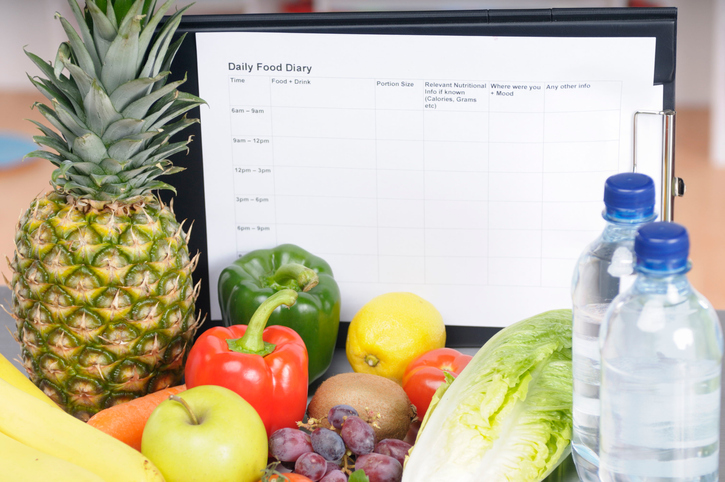Commitment + Clinical Leadership = Better Outcomes

What is a food journal and how can I keep one?
Do you eat as healthy as you think? If you looked over your week, would you correctly remember how much of each food group you are eating?
Many Americans believe that they eat healthy, however, in a study of over 9,700 people, 87% of those surveyed did not rate the quality of their diet correctly. In fact, many of those individuals surveyed believed that they were eating healthier than they actually were.
People who have goals when it comes to the food they eat are advised to keep a food journal. A food journal is a tracker that gives you the ability to see what and how much you are eating each day. Food journals are designed to help you keep track of calories as well as allow you to hold yourself accountable for your eating patterns.
Here are the benefits of keeping a food journal, as well as some tips on how you can get started today!
What is a food journal?
A food journal is a document where you record everything that you eat and drink throughout the day. This includes breakfast, lunch, and dinner, as well as any snacks or extra meals that you might have.
Some people will also keep track of the exact number of calories that they eat. This can be helpful if you want to know if there are any food items that could have potential hidden calorie counts that you did not know about.
Benefits of Keeping a Food Journal
A food journal can be helpful if you want to:
- Lose or maintain weight
- Eat a healthier diet and build healthier habits
- Better manage a health condition, such as diabetes
- Identify food sensitivities
- Identify what causes you to eat throughout the day
A food journal will allow you to be more mindful about the meals you eat each day. You’ll see when and how much you eat, which can help you identify the strengths and weaknesses of your everyday diet. You can also gain insights as to when you may be eating more calories than you should be aiming for in a day.
Tips for Keeping a Food Journal
Here are some tips for keeping an effective food journal:
- Find a time that works best to record your meals. Whether it’s before you eat or at the end of the day, create a system that works for you to ensure that you are writing down what you need to.
- Reflect on your food journal. You should reflect on your food journal at least once a week to see how you’re doing each day. This is your chance to identify where you might be struggling, as well as give you some insights into how you can improve your nutrition.
- Keep track of any food side effects. If you have a health condition, such as being gluten-free, keep track of how certain foods make you feel. If you start to develop side effects from foods that you are eating, you could have allergies that you did not know about.
- Find a system that works for you. Some people enjoy using food journal apps while others like to use a notebook that they can take with them. Find a system that you can stick with for your food journal.
- Set goals. When you are recording a food journal, set goals on what you’d like to achieve while keeping a log of what you eat. This can help you stay on track with your progress and help motivate you to keep journaling each day.
- Monitor your mood. Mood and your food can occasionally be linked. For example, some people find themselves eating more when they are bored. You should write down how you feel when you eat food to analyze if your mood might have something to do with your eating habits.
Saber Healthcare
Saber Healthcare is an organization that provides services to more than 130 buildings across the states of Ohio, Pennsylvania, Virginia, North Carolina, Indiana, and Delaware. To learn more about our company and services, click here.
Saber Healthcare is an organization dedicated to providing consultant services to long-term care providers. This article is for informational purposes and is not meant to be seen as professional advice. Please consult with a medical expert before relying on the information provided.
